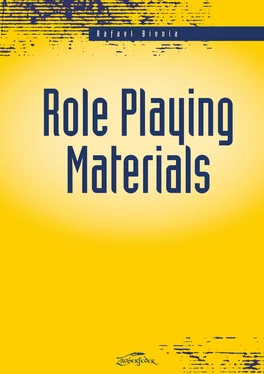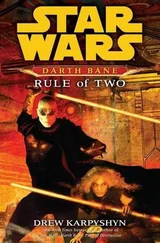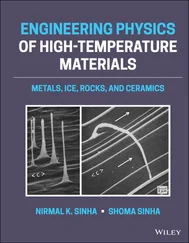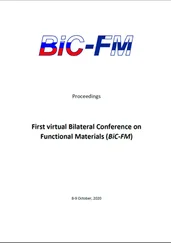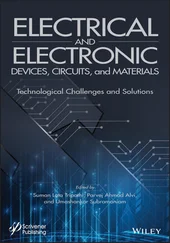The field work for the three role-playing game forms provided a range of opportunities to study material actors in action. Each game session took from four hours (in the case of mixed reality role-playing games) to several days of constant play (in the case of larp). In total, I participated in hundreds of hours of different kinds of role playing from 2010 until 2014. 2During this time, I played each role-playing game form several times at different sites, because I wanted to compare how material work differs. Due to the amount and diversity of my participation, I classify this field work as multi-sited ethnography (Falzon, 2012; Marcus, 1995). Multi-sited ethnography encouraged me to visit multiple sites to uncover the spatio–temporal relationships between the three forms in order to deepen the understanding of role-playing processes and to observe how materials make them work.
I followed materials to sites before and after game sessions, because I was interested in further processes that related to sites of role playing. Some players spend hours on preparation during weekends and evenings. Following material actors to sites of discourse, where players discuss what they do to prepare game sessions or discuss past games, I learned about the demands of materials and gained considerable understanding of the negotiation work that is necessary to include materials. I observed these processes in meetings of players and on online platforms where they discuss and distribute knowledge, for example how to build and modify game materials. My engagement in online forums helped me to position myself “beyond mere observing or lurking” (Michielse, 2015, p. 35), because I was active in discussing hands on experience and theoretical knowledge about role-playing games.
I visited player, designer, and academic meetings dedicated to these games, taking me to the cities of Haarlem (NL), Tampere (FIN), Gothenburg (S), Helsinki (FIN), Offenbach (GER), Köln (GER), and Wiesbaden (GER). At conventions, where players and designers meet, I got in touch with key figures in the contemporary culture involved in the hobby. At these meetings, I participated actively in game sessions but also contributed in reflective discussions on role playing either by sharing preliminary results of this book or by presenting about topics of general interest, such as how to take pictures without disturbing players (Solmukohta, Helsinki, 2012). Being an active part of the processes of player, designer, and academic work allowed me also to observe different types of organizations and to take their point of view on role playing. The insights from these visits helped inform my thought processes in the following chapters, as I selected data about certain phenomena instead of others.
To strengthen my relations with the communities, I became a member of DiGRA in 2013. Within the German larp association Deutscher Live-Rollenspiel Verband (D.L.R.V.), I initiated the founding of the larp research group Deutsche Larp-Forschung in the same year. I established relations between international larp communities, tying East European organizers from Poland with German, French, and American organizers. Appendix A provides a list of conventions and conferences that I participated in.
In terms of following the actors, the question remains what I concretely did to trace material work at these diverse sites of role playing and discussion. The principle “follow the actors” necessitated my going to various sites where role playing happens, including living rooms, pubs (Zu den vier Winden, Bochum), former military areas (Utopion, Saarland, Germany), and youth hostels (Burg Bilstein, Sauerland, Germany). When I arrived there as a researcher, I had to participate in the game session, because role-playing games are rarely played with a non-participating audience. To trace material work in role-playing processes during game sessions, I drew upon the specifics of “follow the actors,” a concept rooted in ethnography (Latour, 1987, 1999). In the following sections, I elaborate upon this principle.
Section 2.2 introduces actor-network theory as the methodological and theoretical toolbox of this study, because I need to explain this study’s alternative take on games in more detail. I elaborate that actor-network theory should not be considered as a framework, but more of an infra-language that works only with empirical data. The section presents key vocabulary that helped me to write about the selected data in the three empirical chapters.
Section 2.3 elaborates on the specifics of the chosen ethnographic tools that helped me to work with actor-network theory during my multi-sited study. The tools included field notes and semi-structured interviews as the main categories of qualitative empirical data. At the end of this section, I elaborate on ethical considerations of this study.
Section 2.4 refines the vocabulary that I use in the following chapters by bridging the vocabulary of actor-network theory with concepts from role-playing game theory, which brings me back to game studies. Table 1 summarizes the refined vocabulary for the following chapters. Finally, I situate this study of materials in the wider field of game studies.
2.2 Introduction to Actor-Network Theory, or Building a Vocabulary
Having addressed what I did to select data when I followed materials to the three sites, the next question is how I selected and presented the results of data analysis. This is a question of how to talk about data. I suggest actor-network theory to solve the problem, because it is also considered an infra-language that helps us to talk about data in an alternative way.
2.2.1 Actors, or various sites of action.The book that you hold in your hands or the text on a screen before you is the work of different elements that came together at certain sites. When I look around the book’s place of birth, my desktop, there is the Oxford Short Dictionary , Latour’s Reassembling the Social , Copier’s dissertation, printed articles and book chapters on actor-network theory, books on role-playing games, but also everything I need to actually write these words: a keyboard under my ten fingertips, a mouse, an LCD display, a personal computer, a modem, pencils, and scrap paper.
For the past four years, the goal has been to make all these elements collaborate and submit the result in form of a dissertation. Some of them were easy to work with, such as pencils and scrap paper, while others disobeyed from time to time, such as my computer when the system crashed while I was writing, because there was an update of the operating system. The content of the articles and books on my table was more volatile. Sometimes, I had to reread a sentence, page, or the entire book to understand. Of course, understanding itself was a mental process of linking new information to what I knew. Just like the audio book producer in the Introduction, however, I pretended to be someone who could write a dissertation and experimented with materials. I assembled books and dedicated a set of writing tools only for the dissertation. Thus, I added materials to the mental processes that were part of reading about the topic and writing this book.
One example for how even words change is the “correct” spelling of role playing. The Oxford dictionary standing on my desktop tells me to hyphenate the verb “to role-play,” the adjective “role-playing” in role-playing games, and also the noun “role-playing” (Brown, 1993, p. 2618). However, in 2012, the Oxford Online Dictionary changed the spelling of the gerund, omitting the hyphen (2012). Someone who is role-playing is written “role player” without a hyphen. Thus, I have retained the hyphens for the verb and adjective, but write the gerund form “role playing” and “role player” without a hyphen. 3
Читать дальше
